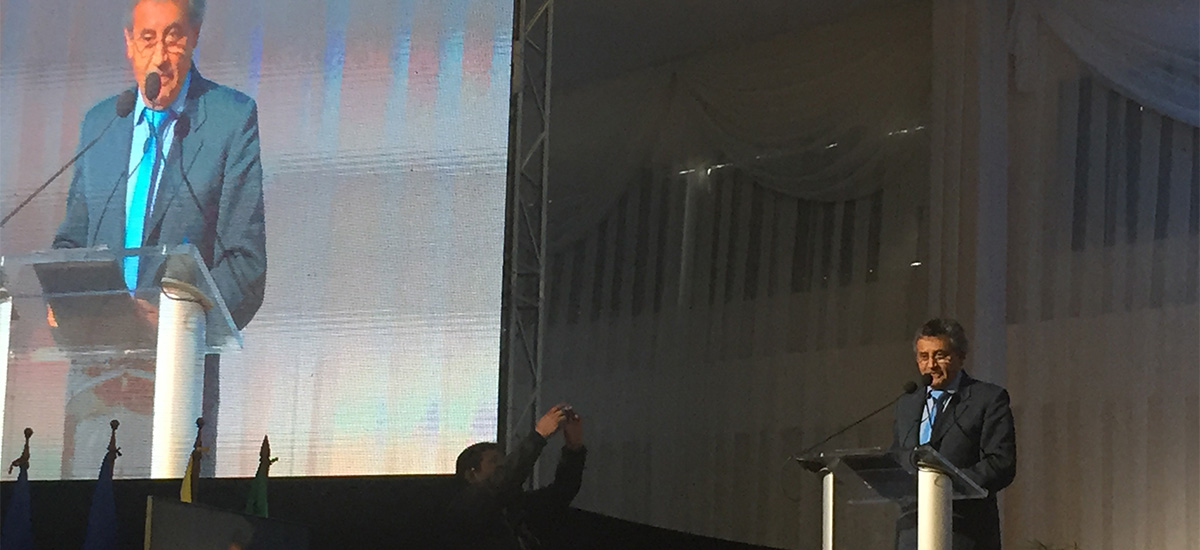Regions of Cochabamba, catalyzers of Local Economic Development

Iván Canelas Alurralde,
Governor of the Department of Cochabama - Bolivia
Cochabamba-Bolivia has hosted the 2nd Regional Forum of Local Economic Development for Latin America and the Caribbean. The regional proposal that will be submitted at the 4th World Forum to be held in October in Cape Verde, Africa, is based on the experiences of the 25 countries.
Our experience at the Departmental Government of Cochabamba – Bolivia, allows us to state that the Local Economic Development based on the territory’s regionalization is one of the ways to overcome territorial inequalities. Providing opportunities accelerate the change processes towards a better quality of life, building on a decentralized public management model.
In Cochabamba we took on the challenge of achieving a comprehensive, fair, equitable and supportive development; in coordination with the other levels of government. As well as generating a co-responsible active participation of social organizations and respect for mother Earth’s rights.
We are convinced that with each one of the 47 municipalities, even the smallest, we can achieve local economic development. For that, we have organized around 5 regions, each one with its productive regions, its climate and its own needs and a municipal association. This way, in Cochabamba we managed to articulate all the stakeholders in the territory, generating better opportunities for the success of LED.
One of the premises for the design and implementation of our management is that the development of the different sectors, whether farming, industry and manufacturing, health, education, tourism and others, will happen as long as the territory has the necessary conditions to compete, in terms of adequate infrastructures, connectivity and communication, energy; as well as an adequate regulatory framework, and a cohesive network of institutions and social actors.
Based on the experience generated in Cochabamba to face the issue of rural-urban migration, we can say that the integration of the urban and rural domains is essential for the exchange and complementation of products and services which boosts the generation of employment sources on the one hand and the provision of food and other products on the other hand, thus influencing in the economic growth and the reduction of social and territorial inequalities.
The growing rural to urban migration implies the accelerated growth of urban areas with low demographic density, with a negative impact in public transport, pollution, a lack of basic services like safe water, sewage systems, waterproofing of recharge areas, the reduction of the few agricultural areas, as well as the emergence of crime and citizen insecurity.
Faced with these problems, which municipalities cannot solve on their own, the Governorate of Cochabamba has regionalized the departmental territory in five regions with development planning and me spaces: Metropolitan Region, Andina, Cono sur, Valles and Trópico. Strategically, we planned and proceeded with the decentralization of infrastructures and productive and social services, the promotion of intermediate populated areas, the formation and reinforcement of the Municipal Associations and the Metropolitan Council.
From all this, we learnt: that regions together with municipalities and the Metropolitan Council are catalyzers for Sustainable Local Economic Development, municipalities on their own couldn’t reach a sustainable development with a social economic impact. Therefore, it is necessary to elaborate policies to generate synergies between the urban/rural spaces. Territorial development in the regions requires a solid institutional framework (for the moment it is the Municipalities, product of voluntary actions).
In order to be sustainable and efficient, the Municipal Associations need to integrate representatives of social actors and of supranational governments. And to get increasingly involved in this multi-level governance, it is important to insist in social inclusion, to reduce marginality and poverty.








































































